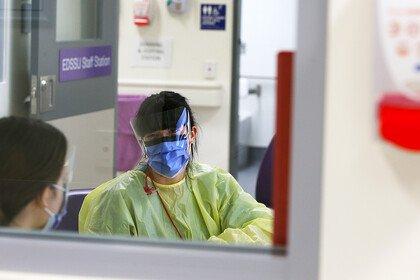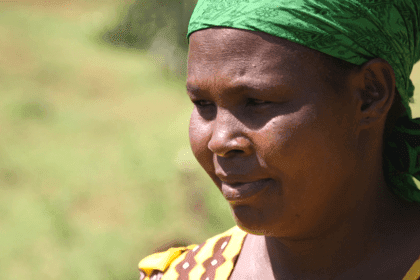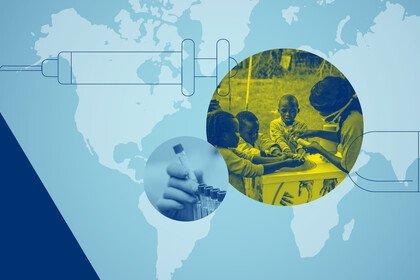
Expanding access to monoclonal antibody-based products: a global call to action
Monoclonal antibodies (mAbs) are one of the most powerful tools in modern medicine. From cancer to COVID-19, they are being developed to treat many different diseases. However, most of the world’s population don’t have access to them.
This report sets out a roadmap to making these lifesaving treatments affordable and available, particularly to those living in low- and middle-income countries.
What's inside
- what monoclonal antibodies are and how they are used to treat different diseases
- an analysis of the global monoclonal antibody market, including the barriers to access
- a roadmap of the actions that need to be taken to make equitable access a reality.
Who this is for
- researchers
- global health community
- pharmaceutical and biotech companies
- funders
- regulators
- policy makers
Wellcome's affordable innovations for global health flagship supported IAVI to produce this report.
Key findings
Monoclonal antibody development is one of the fastest-growing segments of biomedical research
- In 2019, seven of the 10 best-selling novel drugs were mAbs for cancer and inflammatory diseases.
- More than 570 mAbs are currently in clinical testing.
There is a global need for monoclonal antibodies, but they are not globally accessible
- 80% of mAbs are sold in the United States, Europe and Canada. Only 20% of mAbs are sold in the rest of the world, which makes up 85% of the global population.
- Few, if any, mAbs are available in low- and middle-income countries (LMICs). India – which has the most registered mAbs for a LMIC – has 36, compared to the US (112) and Europe (120).
- Monoclonal antibodies are among the world's most expensive treatments. For example, the median price for mAb treatment in the United States is $15k-200k per year. Where mAbs are available in LMICs, they often aren’t reimbursed by public health systems, which adds to their unaffordability.
We need to take action to reshape the monoclonal antibody world
Ensuring equitable access to monoclonal antibodies requires four parallel commitments:
- Increase awareness: spread the word that monoclonal antibodies save lives
- Expand availability: support broader registration of monoclonal antibodies across the globe
- Apply innovations: invest in and deploy new technologies to lower development costs
- Create new models: establish business models that enable different market approaches and promote access.
Downloads
- Expanding access to monoclonal antibody-based products
- Expanding access to monoclonal antibody-based products: executive summary
- Expanding access to monoclonal antibody-based products: appendix
- Monoclonal antibodies: a new era in the treatment and prevention of disease
- The emerging role of monoclonal antibodies in epidemic/pandemic preparedness and response
- The development of HIV-specific broadly neutralising antibodies
- Combination monoclonal antibodies and alternate formats
- India’s biopharmaceutical business: an evolving success story
"This report sets out an achievable roadmap of actions to make equitable access to antibody therapies a reality, but global collaboration is paramount through new policy, business models and innovation. In the face of the ongoing COVID-19 pandemic, it is even more critical to take lessons from this report and break down barriers to accessing these life-saving tools. We must ensure that any potential advances to treat COVID-19 with monoclonal antibodies are made equally accessible around the world, without exceptions."
Infographics
Click images to open gallery
More information
- For more information, contact Lindsay Keir at l.keir@wellcome.org.

